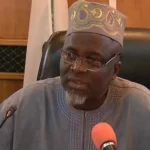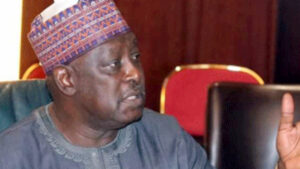Japa: Nigerian students spent $340.84m on foreign University admissions in first half of 2023
Between January and June 2023, Nigerians seeking admission to foreign universities collectively spent a substantial $340.84 million to facilitate their application processes, data from the Central Bank of Nigeria (CBN) suggests.
These figures are derived from data provided by the Central Bank of Nigeria, which tracks the expenditure on educational services for foreign exchange transactions. The data revealed that in April 2023, a total of $40.54 million was expended on foreign education, while the following month, May 2023, saw an increase to $48.81 million. However, in June 2023, there was a notable decrease, with $32.61 million reported.
When compared to the first quarter of 2023, which recorded a total of $218.88 million, this represented a decrease of $96.92 million or 44.28%. Furthermore, the first quarter of 2023 performed poorly in contrast to the second quarter of 2022, with a performance decrease of $124.42 million (50.5%).
Findings also suggests that the funds remitted to foreign academic institutions were not reciprocated with significant inflows from foreign sources into the local education sector.
Experts have suggested that the limited supply of foreign exchange by the Central Bank has compelled prospective students to seek dollars from Bureau De Change operators. This is often due to delays in banks processing the required Form A for foreign exchange transactions.
Recent data from the United Kingdom’s Home Office indicated a significant surge in the number of study visas issued to Nigerians. The number increased by 222.8%, with 65,929 visas issued as of June 2022 compared to 20,427 during the same period in 2021.
The Central Bank’s backlog of accumulated foreign exchange demand on the official market has led individuals and businesses to resort to the black market for their foreign exchange needs. The decline in dollar flows to Nigeria can be attributed to reduced investments and declining crude oil exports, which make up over 90% of the country’s export revenue.
Commenting on the situation, Dr. Anderson Ezeibe, the National President of the Academic Staff Union of Polytechnics, highlighted the negative impact of the government’s inadequate investment in the education sector. He emphasized the need for comprehensive government investment in the sector, citing dilapidated infrastructure and a lack of access to adequate equipment for practical training in tertiary institutions as pressing issues.
Additionally, Professor Alabi Thomas, a Professor of Education at the Federal University of Technology, Minna, attributed the trend of students seeking education abroad to government policies that he believes have adversely affected the local education sector.










More Stories
South African authorities approve Canal+ acquisition of Multichoice
National Sports Festival: Traders, transporters, hospitality businesses boom in Ogun
CCISONFI Conference: Police seek CISOs collaboration in fight against cyber threats in Financial Institutions